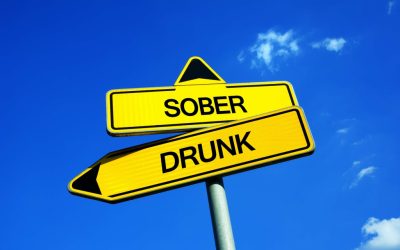September 18, 2023
Soul-Tied & Love-Drunk: The Power of Passionate Love
Studies suggest that alcohol can intensify emotional responses threefold, making you feel things much more strongly than you would when sober. If you’re naturally a bit anxious, drinking can heighten that anxiety. If you tend to be sentimental, you might find yourself tearing up more easily.
How Sleep and Stress Control Vitality: Essential Lifestyle Factors for Better Health
Regardless of who it’s from, a drunken “I love you” text typically carries some sort of weight and significance. One of the primary reasons is that alcohol lowers inhibitions, making it easier for someone to express their true feelings. However, it’s important to keep in mind that alcohol can lower inhibitions and cause people to say things they may not truly mean. So, while a drunk “I love you” text may feel significant in the moment, it’s important to approach it with caution and consider the context and relationship before taking any drastic actions. The reality that the shattering of this inherently false reality that you’ve built can, actually, be a wonderful turning point in your relationship. More often that not it feels like a painful loss – and one that you may actually need to spend some time grieving.
- Tell yourself over and over all the reasons that you are valuable, important (to yourself), and lovable (from yourself).
- Generally, individuals with smaller body frames will feel the effects of alcohol more quickly than larger individuals because there is less body mass to distribute it through.
- Yes, sometimes people mean what they say when they are drunk.
- A big part of our residential program is where individuals learn to identify and address their emotional patterns without relying on alcohol as a coping mechanism.
- Understanding the science behind it can help you make more mindful decisions about your consumption.
This can lead to a false sense of connection and love that may not be sustainable in the long run. In this situation, it may simply be an expression of appreciation and affection for the other person, much like saying “I love you” to a family member or close friend. However, it’s still important to consider the context and tone of the message before responding, as it may be suggestive of something more. Finally, the Blackout Drunk is someone who drinks to the point where parts of their evening become hazy or entirely unmemorable. They may have blanks in their memory, or conversations will be forgotten. This type of drunk personality may put themselves in danger without being aware of it.

Stage 7: Death (BAC: 0.45%+)
- This clearly shows their drinking is becoming a problem, and they need to seek therapy or addiction support.
- She’s basically singing about getting drunk and having sex in a tub with Jay Z.
- Like love goggles, you only see certain parts of them and those parts are all roses.
- However, just like with alcohol induced drunkenness, recognizing the truth of your altered state is essential to striking a balance.
Blood Alcohol Content, or BAC, is the measure of alcohol in your bloodstream. It’s the standard metric used to determine if someone is legally intoxicated. While factors like weight, sex, and food intake can https://chintingauto.com.tw/full-body-detox-misconceptions-and-6-ways-to/ affect how quickly your BAC rises, the legal limit for driving in the United States is a BAC of 0.08 percent for most drivers over 21. Reaching or exceeding this limit means you are considered legally impaired to operate a vehicle, regardless of how you might feel. It’s important to remember that impairment begins long before you hit the 0.08% mark, and any amount of alcohol can affect your ability to drive safely.
How Alcohol Affects Your Brain’s Messengers

A pyroclastic juggernaut of underripe and oversized Chilean cantaloupes mixed with battery acid and rusty nails. New beginnings and hope, until tomorrow, and that cup of office joe. You’re telling them that drinking is more important than your relationship with them, or you are unable to change due to addiction. This is especially true if someone experiences a trauma-related trigger while drinking. Their typical coping mechanisms may shut down, paving the way for raw, emotional reactivity. You might struggle to effectively express your needs, emotions, or concerns in a healthy and assertive manner in your day-to-day life.
Within 30 minutes of your first drink, alcohol suppresses your brain’s regulatory systems and amplifies emotional responses threefold. Delaying emergency care increases the risk of serious health issues, including death. If uncertain about whether a person’s alcohol consumption is an emergency, err on the side of caution. Heavy drinking tends to cause more serious intoxication and may eventually cause serious health issues, such as blackouts or kidney failure. Alcohol might seem like a friendly social lubricant, but it’s a sneaky one, quietly infiltrating our brain and bodily systems. Its first stop is the central nervous system — the brain — command central for all our actions, thoughts, and feelings.
What Alcohol Does To Your Personality

For some people, this might mean becoming loud and boisterous, while for others, they might become more introverted or quiet. Your drunk personality can be influenced by a range of factors, including your mood before you started drinking, the amount you’ve consumed, and your environment. People use the term “love drunk” to describe being in a state of extreme infatuation that blinds them from seeing reality. It’s a mental state of being overwhelmed by feelings of intense romantic love. In its milder form, a person may be intoxicated by the love of another person.
Alcohol and Mood Swings: Understanding The Connection
But most of the time, people say whatever comes to mind when drinking without any concern if it’s genuinely how they feel. Alcohol lowers inhibition and makes people feel talkative, extroverted, and emboldened. The result is drunk blabbermouths who overshare and say embarrassing or regrettable things. Sometimes alcohol emboldens someone to share pent-up feelings, but other times, it clouds judgment and makes people say things they genuinely do not believe and wish desperately to take back the next day. The prefrontal cortex (our brain’s “CEO”) love drunk feeling experiences significant disruption. This sophisticated neural region, responsible for judgment, impulse control, and complex decision-making, becomes increasingly impaired as blood alcohol levels rise.
GABA’s enhancement creates that familiar relaxed sensation, while glutamate’s suppression slows down our thought processes. Meanwhile, alcohol triggers a flood of dopamine and serotonin, our pleasure and mood-regulating chemicals, creating temporary euphoria while disrupting our natural emotional balance. Like other poisons, the body works to rapidly remove it from the blood, which makes a lot of work for the liver and kidneys. Alcohol changes the way that several neurotransmitters in the brain work. For more information on what is Oxford House binge drinking and how to stop it, read What Is Binge Drinking and How Can You Stop It?. Released as part of Beyoncé’s self-titled fifth album, “Drunk in Love” came at a moment when both artists were exploring new depths in their music and in their relationship.
However, the truth is that alcohol affects your brains ability to regulate your behavior, leading to a reduced sense of inhibition, impaired judgement, and lowered ability to control your actions. These effects can lead to a range of behaviors that might seem out of character or unexpected, but they don’t fundamentally change who you are. It could be an act of impulsivity, an underlying issue, or a simple act of care and friendship.